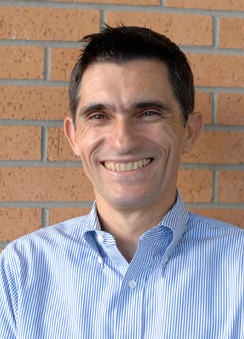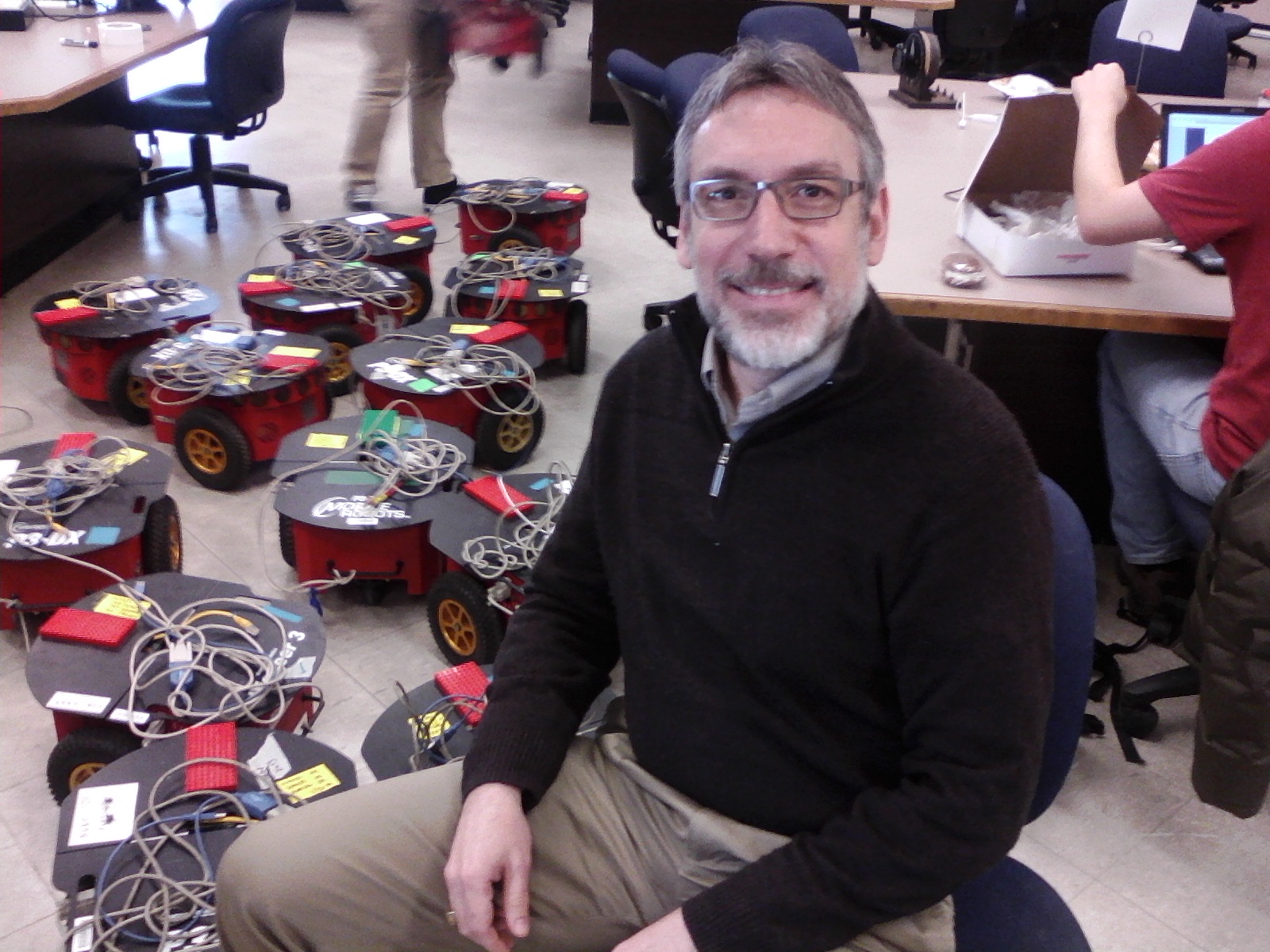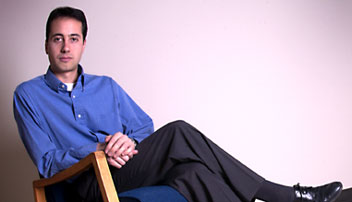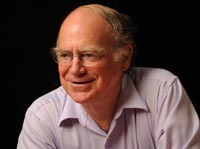The MIT Electrical Engineering and Computer Science (EECS) department offers an in-depth education in principles built on mathematics, computation, and the physical sciences. Researchers make breakthroughs in a variety of topics, including product design, data science, robotics, and hardware design.
LGO students work with EECS faculty to develop their own curriculum that pairs with their MBA coursework and plays to the student’s strengths and academic interests.
LGO students completing the MS in Electrical Engineering and Computer Science complete:
- Take two LGO first-summer core classes: Engineering Statistics and Data Science (15.087) and System Optimization and Analysis for Operations (15.066).
- Enroll in three (36 units) graduate-level courses within the EECS department from the AAGS list.
- Complete 6+ additional units of graduate-level Engineering courses.
- Participate in an LGO Internship that integrates Electrical Engineering, Computer Science, and management content, culminating in a dual-degree thesis overseen by faculty advisors.
LGOs have the flexibility to design their own research focuses within Electrical Engineering and Computer Science (Course 6), with guidance from their department advisor. EECS is organized into three broad research areas where students can pursue specific research focuses:
- Electrical Engineering
- Computer Science
- Algorithms and Theory
- Computational Biology
- Computer Architecture
- Graphics and Vision
- Human-Computer Interaction
- Programing Languages and Software Engineering
- Robotics
- Security and Cryptography
- Systems and Networking
- Artificial Intelligence & Decision Making
- Artificial Intelligence and Machine Learning
- Computational Biology
- Graphics and Vision
- ML and Social Science
- Natural Language and Speech Processing
- Optimization and Game Theory
- Robotics
- Systems, Theory, Control and Autonomy
Some research areas (for example, Robotics) are interdisciplinary by nature, and span several of these headers. Bioinformatics research is also included in Computer Science. A full list of Course 6 classes can be found on the MIT Course Catalog.
Popular research areas among LGOs:
Integrated Circuits and Systems
The focus in circuits deals with the design and creation of sophisticated circuits and systems for applications ranging from computation to sensing.
Key Areas of Research: Signal Processing, Communications, and Control; Energy and Power Systems; Circuits and Systems; Digital Design and Computer Architecture; Computer-Aided Design and Numerical Methods
Sample of Classes: 6.1311 Independent Inquiry Power Lab; 6.320 Feedback System Design; 6.321 Solid-State Circuits; 6.345 Automatic Speech Recognition; 6.374 Analysis and Design of Digital Integrated Circuits; 6.631 Optics and Photonics; 6.695; Engineering Economic & Regulation: Electric Power; 6.720 Integrated Microelectronics Devices; 6.943 How to Make Almost Anything
Biological and Medical Devices and Systems
This area focuses on the development of technology and systems that will transform the future of biology and healthcare. Specific areas include biomedical sensors and electronics, nano- and micro-technologies, imaging, and computational modeling of disease.
Key Areas of Research: Cellular and Molecular Engineering; Medical Imaging; Medical Devices and Microsystems; Clinical Inference and Learning in Medicine; Physiological Modeling
Sample of Classes: 6.524 Molecular, Cellular, and Tissue Biomechanics; 6.525 Medical Device Design; 6.521 Cellular Neurophysiology and Computing; 6.555 Biomedical Signal and Image Processing; 6.557 Biomolecular Feedback Systems; 6.872 Biomedical Computing
Artificial Intelligence and Machine Learning
This research area covers a wide range of topics in this quickly evolving field, advancing how machines learn, predict, and control, while also making them secure, robust and trustworthy. Research covers both the theory and applications of ML. This broad area studies ML theory (algorithms, optimization, etc.); statistical learning (inference, graphical models, causal analysis, etc.); deep learning; reinforcement learning; symbolic reasoning ML systems; as well as diverse hardware implementations of ML.
Key Areas of Research: Knowledge representation and reasoning; Knowledge-based systems; Medical information systems; Machine learning; Natural language processing; Perceptual interfaces and human/computer interaction; Robotics; Speech Understanding; Vision
Sample Classes: 6.844 Artificial Intelligence; 6.854 Advanced Algorithms; 6.860 Statistical Learning Theory; 6.862 Applied Machine Learning; 6.867 Machine Learning; 6.877 Principles of Autonomy & Decision Making; 6.883 Adv Topics in Artificial Intel; 6.884 Adv Topics in Artificial Intel
Systems Theory, Control, and Autonomy
This area focuses on theoretical research including quantification of fundamental capabilities and limitations of feedback systems, inference and control over networks, and development of practical methods and algorithms for decision making under uncertainty.
Key Areas of Research: Distributed computing; Fault-tolerant computing; High performance computing and applications; Operating systems; Parallel systems; Parallel computation; Programming languages and compilers; Software specification Design, and analysis; VLSI architecture and computer systems
Sample of Classes: 6.828 Operating System Engineering; 6.829 Computer Networks; 6.831 User Interface Design; 6.833 Human Intelligence Enterprise; 6.835 Intell Multi User Interfaces; 6.857 Network and Computer Security; 6.869 Advances in Computer Vision; 6.894 Adv Top Graph Human Comp Inter
Many of LGO’s partner companies are eager to work with LGOs getting their degree through EECS. Depending on what your academic focus is, you can work on a number of fascinating topics.
A few recent EECS internships were:
Michaela Murr (LGO ’23)
Title: Industry 4.0 in Biomanufacturing: Predictive Real-Time Models Using Process Analytics Technology
Partner Company: Amgen Inc.
Christian Allinson (LGO ’23)
Title: Enabling Proactive Quality in Commercial Airplanes using Natural Language Processing
Partner Company: Boeing
Elizabeth Hau (LGO ’22)
Title: Building a Digital Thread and Analytics Model to Improve Quality Controls in Medical Product
Partner Company: Johnson & Johnson
Christina Michaels (LGO ’22)
Title: Short-Cycle Job Scheduling and Assignment with Recommendations for Optimization Model Operationalization
Partner Company: National Grid
Felix Dumont (LGO ’21)
Title: Deep Learning Models of Scanner/Vision Tunnel Performance in Sortation Subsystems
Partner Company: Amazon
AJ Tan (LGO ’21)
Title: Deep Learning Image Augmentation using Inpainting with Partial Convolution and GANs
Partner Company: Amgen Inc.
For LGO applicants, the Electrical Engineering and Computer Science department looks for:
- A strong academic background in science or engineering with significant knowledge of electrical engineering or computer science. Previous LGO EECS students have enrolled with degrees in computer science, physics, applied mathematics, biomedical engineering, and electrical engineering. In rare cases, students have a background in another engineering discipline with research and work experience in an EECS field.
- Defined research interests in line with EECS’s department research areas.
Applicants should have a stated interest in Electrical Engineering and Computer Science. Previous work experience in an industrial setting is ideal. Former students came from systems engineering and design engineering roles within firms in the aerospace, IT, electronics, and software industries.
A dual degree in MBA and EECS prepares students for a range of roles in many industries. Recent graduates from LGO EECS work in electronics, software, e-commerce, and web services. Some students go into biotech, research institutes, or consulting. Many work in strategic management, operations management, or project management roles directly after the program.





